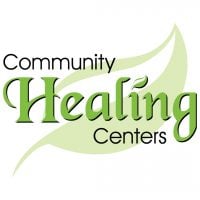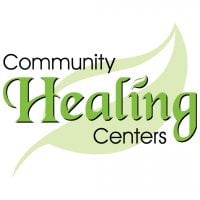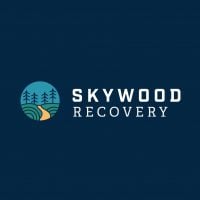Douglass Community Association
Drug Rehab Center in Kalamazoo, Michigan
- Mental Health
The Douglass Community Association in Kalamazoo, Michigan provides addiction and substance abuse treatment with a team of specialists offering a variety of services, personalized treatment plans, educational resources, crisis stabilization, referrals to support services, evidence-based practices, and comprehensive support services.
About Douglass Community Association in Michigan
The Douglass Community Association in Kalamazoo, Michigan is a dedicated provider of addiction and substance abuse treatment. The facility is comprised of multiple buildings and a large, open area where patients can engage in recreational activities. At Douglass Community Association, a team of specialists offer a variety of services to those dealing with addiction and substance abuse, ranging from individual and group therapy to medication-assisted treatment to counseling.
Douglass Community Association provides care for those dealing with addiction and substance abuse in multiple forms. Patients receive personalized treatment plans that address a variety of factors related to their addiction, such as the underlying causes, triggers, and the impact of addiction on their life and relationships. Patients also receive educational resources to better understand the causes and effects of their substance use. They also provide access to crisis stabilization services and referrals to other support services in the community.
The Douglass Community Association is an accredited and licensed facility that offers evidence-based practices. The facility has received numerous awards, such as the Consumer Choice Award by the Better Business Bureau, as well as recognition from the National Committee for Quality Assurance in addiction disease management. Douglass Community Association also provides integrated care, with a team of providers that specialize in different areas related to addiction and substance abuse, such as nursing, counseling, and psychiatry. They offer comprehensive support services to those suffering from addiction, such as case management and aftercare support.
Genders
Ages
Modality
Additional
Conditions and Issues Treated
Levels of Care Offered
This center offers a variety of custom treatment tailored to individual recovery. Currently available are Outpatient, with additional therapies available as listed below.
Outpatient treatment is considered the lower intensity level of addiction treatment. It’s ideal for early phase addiction or lower intensity addictions. It may include weekly sessions instead of daily. It may include weekly sessions instead of daily. Peer group support, 12-step programs, and individual counseling may still be involved but at a lesser frequency than an intensive outpatient program. It is a good choice for someone who doesn’t need to go through a medically supervised detox and who has a supportive home environment. It requires motivation and dedication to commit to the program without constant monitoring.
Therapies & Programs
Individual therapy involves one-on-one sessions between the patient and therapist. It provides patients with a safe environment to openly discuss personal and sensitive issues with the therapist. They find the therapist as someone they can trust. Individual therapy aims to identify the core issues that would have led the patient to substance abuse and address them effectively. The therapist can develop patient-specific customized solutions through individual therapy, which aids speedier recovery.
Couples therapy works with clients and significant others in a professional capacity to improve relationship dynamics. This can be helpful for addicts who are trying to marry the idea of recovery into their work, family, social lives – any aspect that has to do with relationships.
Through counseling sessions, addicts will have an opportunity to talk about their addiction with professional partners. These partners can offer feedback and advice on how to get sober while keeping healthy relationships intact. A good couples therapist will help addicts understand their part in an unhealthy relationship dynamic or find ways to deal with anger or resentment from significant others outside of the home.
Family therapy is a group problem-solving that aims to improve communication and relationships between the addict, their family, and sometimes friends. The main goal of family therapy for drug addiction is to create an environment where communication can occur without judgment, hostility, or blame. The therapist is with the family as they learn to communicate differently, especially with the addict when s/he is using. The family can learn to reduce their enabling behavior or rally together and support each other during tough times.
An addict’s family can play a vital part in helping them to avoid relapse because they can spot the warning signs and help them get back on track before it becomes too much of a problem. Family therapy is one of the most effective ways to help addicts stay on the path to long-term sobriety. When a drug addict decides that they want to try and get sober, it takes the support of every person they love to succeed. It can be incredibly difficult for loved ones to watch an addict go through the pain and suffering of withdrawal, but by being there with them and supporting them, they can help to make sure that the addiction never returns.
Groups typically involve meetings with other recovering addicts who can relate to one another’s experiences. They might meet in person or online and typically focus on the process of staying sober rather than overcoming a specific addiction.
In these groups managed by Douglass Community Association, addicts can build a sense of community and develop strong emotional connections with others who understand what they are going through. These beneficial relationships can help addicts overcome their cravings and prevent relapse at any point during the recovery process.
In general, trauma therapy is a clinical process that helps individuals deal with mental stress often caused by traumatic events. The therapist helps the person identify, understand, and work through the problem. This is done with the help of talking about it in group or one-on-one counseling sessions. Therapists use relaxation, role-playing, art, and music to help the person open up about what is bothering them.
There are many different types of trauma therapists, such as psychiatric nurses and counselors. Not everyone is a good candidate for this type of therapy; it is generally reserved for people who have recently experienced a traumatic event and struggle to get over it. It is often done for children, teenage victims of sexual assault, and war veterans.
There is hope for people who are addicted to drugs and alcohol. Cognitive Behavioral Therapy (CBT) is the solution. CBT focuses on the underlying thoughts and behaviors that caused the addiction problem in the first place and may cause a relapse. This type of psychotherapy addresses negative feelings common in substance abuse disorders. It helps to change them by restructuring thought patterns. It’s about removing negative thoughts and providing long-term benefits while promoting self-awareness, self-control, and healthy ways to respond to negative thoughts. These sessions can be done by themselves or as part of combination therapy.
Payment Options Accepted
For specific insurance or payment methods please contact us.
Additional Details
Specifics, location, and helpful extra information.
Kalamazoo, Michigan 49007 Phone Number(269) 343-6185 Meta DetailsUpdated November 25, 2023
Staff Verified
Douglass Community Association Patient Reviews
There are no reviews yet. Be the first one to write one.
Kalamazoo, Michigan Addiction Information
Michigan has the second-highest rate of drug and alcohol abuse in the nation. Heroin is linked to more than 50% of the state's hepatitis C cases. Marijuana is the drug most often associated with crimes in Michigan, followed by methamphetamines. Opioids alone are responsible for almost 20% of all drug overdose deaths in Michigan.
Kalamazoo, Michigan has a serious drug addiction and abuse problem. In 2016, there were 120 drug overdose deaths in Kalamazoo County - a rate of 18.6 per 100,000 people. The most commonly abused drugs are marijuana, heroin, and prescription opioids. Families are affected, with many children being left without parents due to addiction. In Kalamazoo, MI, there are a variety of treatment facilities that offer different types of care.
Treatment in Nearby Cities
- Owosso, MI (86.8 mi.)
- L'anse, MI (338.6 mi.)
- Tecumseh, MI (87.3 mi.)
- Farmington Hills, MI (114.7 mi.)
- Kincheloe, MI (279.7 mi.)
Centers near Douglass Community Association


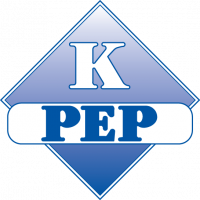
The facility name, logo and brand are the property and registered trademarks of Douglass Community Association, and are being used for identification and informational purposes only. Use of these names, logos and brands shall not imply endorsement. RehabNow.org is not affiliated with or sponsored by Douglass Community Association.

